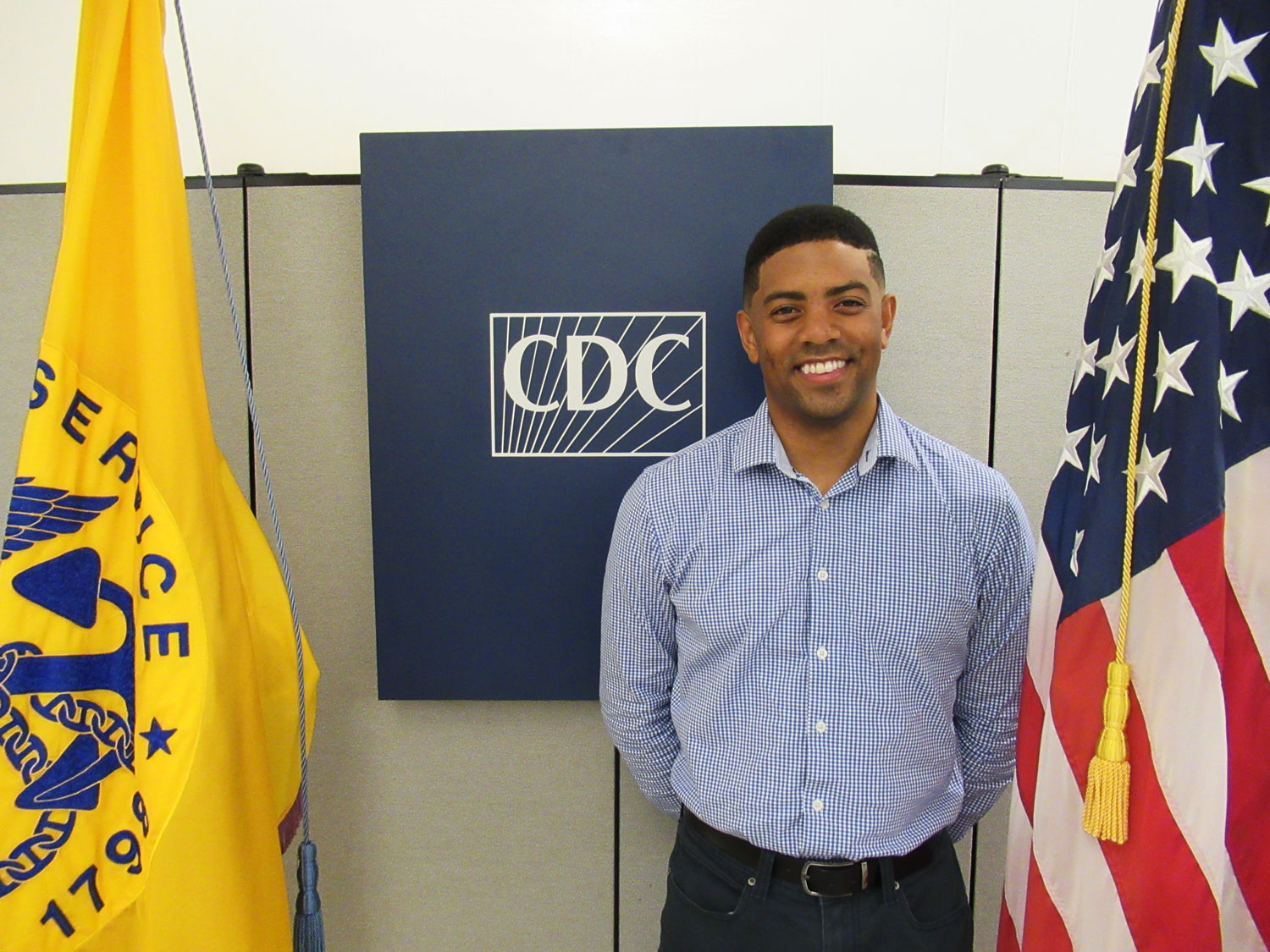Spotlight: Q&A with Kory Trott, Director of the Research Integrity and Consultation Program, Division of Scholarly Integrity and Research Compliance

Kory Trott is the Director of Virginia Tech’s Research Integrity and Consultation Program in the Division of Scholarly Integrity and Research Compliance. Trott joined the Virginia Tech community in November 2019 and is responsible for directing the research ethics consultation service, serving as the university research integrity officer, and leading the campus research ethics and compliance training program.
How does your background contribute to where you are right now in your career?
As a lawyer by training with a master’s in public health, my educational background has prepared me for a career in research ethics. Legal training emphasizes the importance of interpreting, analyzing, and explaining complex regulatory language in a concise, yet compelling way. As a research ethicist, I am frequently presented with complex scenarios. Within those scenarios, as with statutory language, there is often subtext, that is critically important to the analysis. Active listening and analytical skills I learned in law school have translated well into my role as a research ethicist.
Another important aspect of my role is being comfortable with ambiguity and uncertainty. When working with researchers to navigate complex ethical questions, there is often incomplete information. My experience in the public health ethics program at the Centers for Disease Control and Prevention has prepared me to help the Virginia Tech research community to navigate the ethical issues that accompany innovative research.
Personally, my background as a soccer player has contributed to my growth. Working as a part of a team requires collaboration and communication. My career thus far has leveraged those same skills. I frequently collaborate with my colleagues in other Division of Scholarly Integrity and Research Compliance (SIRC) programs as well as individuals from across the university to develop webinars and presentations. My soccer career gave me the opportunity to visit Blacksburg. In 2008 during my sophomore season at George Washington University we played Virginia Tech. Unfortunately we lost 2-1 on a late penalty in the 88th minute, but despite the loss, I'm still excited to be a member of the Virginia Tech community.

What support do you provide for the research community?
As the Director of the Research Integrity and Consultation Program, I support responsible innovation in three domains. First, I serve as the university’s research integrity officer, which is responsible for fostering an environment that promotes the responsible conduct of research. This includes serving as a resource to departments and colleges to develop strong curricula on ethical conduct of research, as well as reviewing allegations and reviewing allegations of research misconduct. Research misconduct is a statutorily defined term that includes plagiarism, fabrication, or falsification in research. When an allegation of research misconduct is made, I conduct an initial assessment. Then, if necessary, I lead the university’s investigation to determine if research misconduct has occurred. The research misconduct review process helps to protect public trust in the university and the university’s research.
The second domain for which I am responsible is leading the Division of Scholarly Integrity and Research Compliance’s education and outreach efforts on campus. To do research with integrity and in compliance with state and federal regulations, investigators must be aware of what is expected as they conduct their work. It is my job to communicate what is required and to help researchers understand the ethical underpinnings of the requirements. This includes serving as a guest lecturer for various undergraduate and graduate classes. I also lead the SIRC Investigator Series — a series of one hour webinars that cover topics related to research compliance and scholarly integrity. In addition to providing the research community with important information about the regulatory requirements for conducting research at Virginia Tech, each webinar highlights the ethical foundations of why the various rules, regulations, and requirements exist. To state it more simply — the SIRC Investigator Series not only covers the what, how, and when of responsible research, but also the why.
Finally, my third area of responsibility is consultation. Integrating ethics education into the educational experience is one aspect of Virginia Tech’s dedication to responsible innovation. Regardless of a student’s major or eventual career path the ability to identify, analyze, deliberate, and defend a position based on ethical considerations is an important professional and interpersonal skill. The program provides faculty who are teaching ethics and integrity courses or looking to integrate ethics into their traditional curriculum with guidance for facilitating respectful discussions that challenge students to identify ethically relevant considerations, analyze the importance of those considerations, and then respectfully deliberate and defend their positions. For example, the another area of consultation includes research ethics questions that are not directly addressed by animal or human subjects regulations-- questions about ethical approaches to research design, or ethical dissemination of research results.

How can researchers conduct ethically sound research?
Considering the ethical dimensions and implications of a proposed research project in the planning phase is one way to build ethics into the research process. Innovative research, like the research conducted at Virginia Tech, can sometimes challenge core values and long held beliefs. Taking time to think critically about the relationship between the research, our values as an institution, the code of professional ethics that inform a researcher’s chosen field of study can help to identify ethical considerations that might otherwise be overlooked. It can also be helpful to seek out contrary viewpoints that challenge our assumptions and preconceptions about the nature of our research.
In addition to reflecting on the ethical dimensions of their research projects, researchers can also seek guidance from SIRC on the standards for conducting research at Virginia Tech. While compliance with federal regulations and institutional policies doesn’t necessarily result in ethical research, the standards set out in the regulations provide a framework for responsible research.
How does sound research ethics support responsible research?
In addition to avoiding research misconduct and complying with the regulations that govern research, ethical research requires an ongoing discussion about responsible research and innovation. The Research Integrity and Consultation Program promotes frank conversations about integrity and objectivity in research. Those conversations include discussions about the negative effects that detrimental research practices like bullying, harassment, and discrimnation can have on our ability to conduct ethical research. Objectivity and integrity in research also help to ensure public trust in research. Public trust is vital to the research enterprise because trust is at the core of credibility. Without credibility the innovative research that takes place at Virginia Tech is less impactful.
How has COVID-19 impacted the way we conduct research, today?
COVID-19 has prompted researchers to incorporate technologies that facilitate their ability to conduct research remotely while still protecting privacy and confidentiality. This has created efficiencies for data collecting that might not have otherwise been recognized.
What inspires you?
Scientific research has brought about tremendous improvements in our understanding of the university and the quality of life for humanity. Research has also been the source of great pain and suffering. My role at Virginia Tech affords me the opportunity to create an environment where the positive results of research far outweigh the deleterious effects.
I also enjoy the opportunity to give back in the form of educating the next generation of researchers. I’ve had the good fortune to have mentors throughout my career that created a space for me to grow, learn, fail, and succeed. An important part of my role is to help create an environment at Virginia Tech where students, faculty, and staff feel that same kind of support when conducting research.
When do you think you are at your best, professionally?
I think I shine when standing in front of a room or researchers talking about ethical decision-making. While public speaking can be intimidating, I find that the fear and anxiety motivate me to give my best presentations. Over the course of my career, I’ve also developed a comfort level with the material that allows me to weave my personal experiences into the more didactic portions of the presentation.
In what ways does Virginia Tech’s Principles of Community guide you?
The Virginia Tech Principles of Community are consistent with and foundational for ethical research. In research ethics activities that are detrimental to the dignity and value of every person are part of a group of activities that are known as detrimental research practices. Detrimental research practices such as bullying, harassment, and discrimination can be indicative of an environment that tolerates or encourages research misconduct. Feeling supported, welcome, and valued creates a research environment in which researchers can have an ongoing conversation about integrity and objectivity in their work.
To nominate a professional from the Office of Research and Innovation, please fill out this brief survey.


